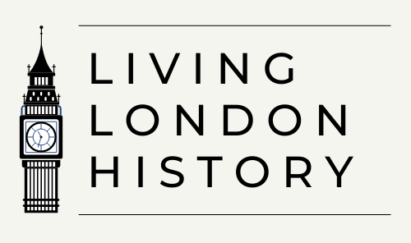Rising gracefully above the tumult of Kensington High Street is a beautiful gothic church spire. It belongs to St Mary Abbots Church and is actually the tallest in London.
Read on to have a look inside and history behind this beautiful church.
Medieval Kensington
The name ‘Kensington’ comes from the Saxon ‘Chenesitun’ or ‘Cynesingetun’ meaning ‘town of Chenesi’, whose sons established the settlement in around 700AD.
A parish was established in Kensington in 1260 dedicated to St Mary and the first church recorded here in 1262.
The church went through a number of reincarnations as the area grew.

You can see from the map above that a community had built up around Kensington Palace by 1746. King William III moved his court to Kensington Palace at the end of the 17th century. However, immediately to the West, are still essentially open fields.
The Current St Mary Abbots

The fourth incarnation, pictured above, became too small for the swelling population in the 19th century and was falling into disrepair.
Gothic-revival architect, George Gilbert Scott, famous for designing the Albert Memorial in Hyde Park and the Midland Grand Hotel at St Pancras Station, was commissioned to design a new church befitting of the area’s wealth and status.

The current St Mary Abbots was constructed between 1869 and 1872. The West front with its large window and tympanum, is said to be loosely based on Dunblane Cathedral.

The magnificent church spire followed in 1879, a year after Scott’s death.

The design was influenced by that of St Mary Redcliffe in Bristol and at 278ft is London’s tallest.

In second place, at 253 feet, is St Augustine’s Kilburn, known as the ‘Cathedral of the North’.
I love the sense of peace and tranquillity you get after creaking open the door of one of London’s churches and you certainly get that at St Mary Abbots. You enter its cathedral-like interior and immediately escape the commotion of Kensington High Street.

By design, your focus is drawn to the altar at the far end and beautiful reredos (the gold ornamental screen).

In March 1944 the church suffered considerable damage from incendiary bombing. The roof collapsed and had to be completely replaced after the war.

According to the church’s website there is a story in which, during an air raid, as the fire fighters tackled the blaze with their hoses, an air-raid warden played the organ to keep the water out of the pipes; no doubt rather adding to the drama of the situation.
What To Look Out For

You can enter via the West door, pictured at the beginning of the blog or via this south entrance directly off Kensington High Street. This atmospheric and unusual, vaulted cloistral approach was added in 1889-1893.

Outside the West door look out for St Mary Abbots school. The school was founded in 1707, with the present buildings dating from 1875.
The ‘bluecoat’ children statues on the outside, date from 1715 and show that this was once a ‘bluecoat’ charity school, common in the 17th and 18th centuries. The name comes from the blue uniform that they wore, with blue dye being one of the cheapest to produce.

You can find out more about Bluecoat schools and statues here.
Despite the 19th century rebuild, the church retained historic features from previous incarnations.
I was immediately drawn to this monument to ‘Henry Dawson ESQ, Alderman of Newcastle Upon Tyne who was twice mayor of the said towne & a Member of Parliament’ who died in 1653.

The pulpit also dates from the 17th century.
The church has some very ornate memorials and monuments, such as the one below.

One of the best little oddities to spot is this scale model of St Mary Abbots, made entirely from 41,300 matchsticks. Constructed by parishioner R Smith, it took him 3 years to complete and was presented to the church in December 1963.

I can highly recommend a visit to St Mary Abbots next time you are in Kensington.
The church is open daily from 8.30am – 6pm and on Saturday 10am – 6pm. You can find out more about visiting on their website here.
Thank you for reading, browse below for more of London’s historical hidden gems.
The Onion Garden: Westminster’s Hidden Green Oasis
The City of Westminster is a very green borough but that largely comes in the…
The Extraordinary Church Transformed Into A Battleship
I had the pleasure recently of being shown around the Tin Tabernacle in Kilburn. It…
The Lost River Fleet: A Self-Guided Walk And Map
London has many ‘lost’ rivers, that have played a huge role in defining the landscape…
The Hardy Tree And Historical Treasures of St Pancras Gardens
An oasis of tranquility amid the hustle and bustle of King’s Cross, St Pancras Gardens…






I can see that the church is certainly worth a visit. What a treat to leave the busy High Street and walk into that peaceful interior.
Hi June, it definitely is! Quite a magical feeling. Warm wishes, Jack
Pingback: A Look Inside The Stunning St Pancras Renaissance Hotel - Living London History